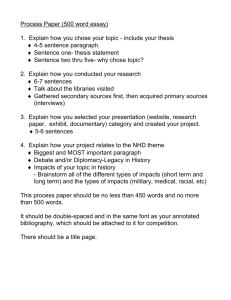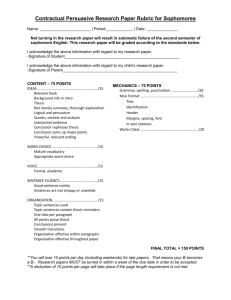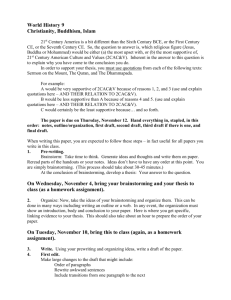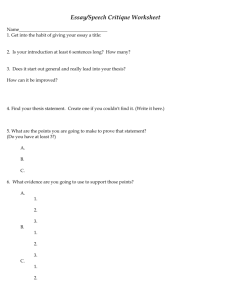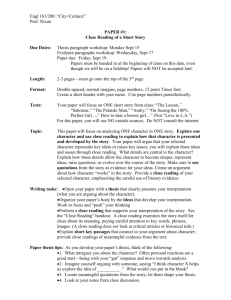Liberal Studies Writing Standards An A Paper Has a sound, original
advertisement
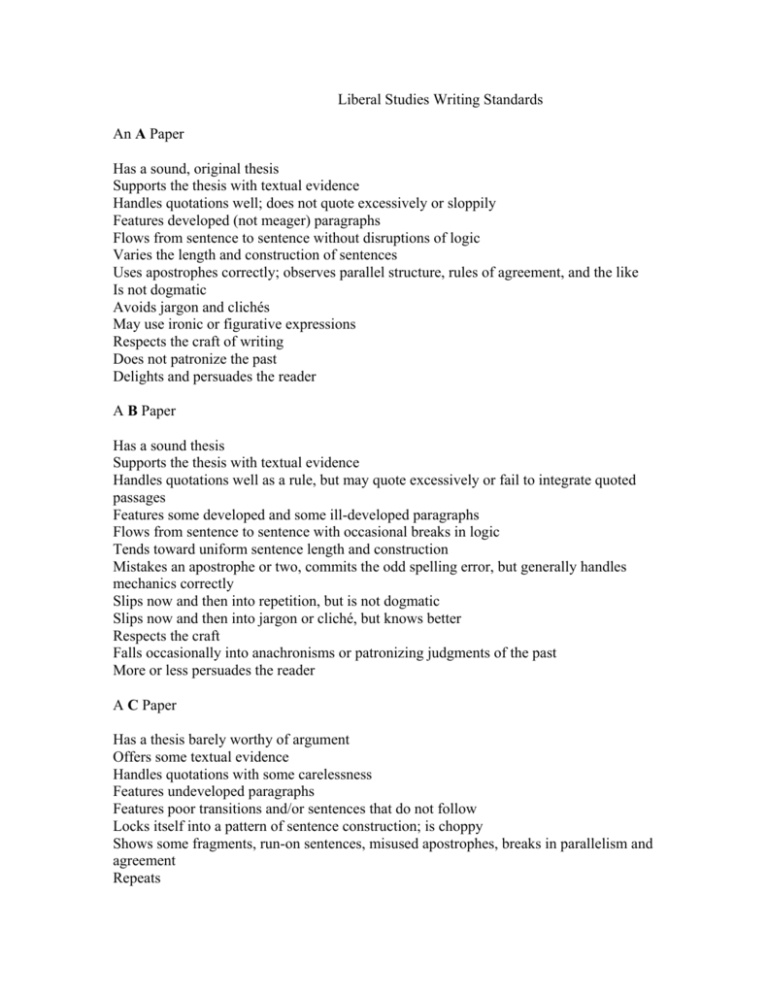
Liberal Studies Writing Standards An A Paper Has a sound, original thesis Supports the thesis with textual evidence Handles quotations well; does not quote excessively or sloppily Features developed (not meager) paragraphs Flows from sentence to sentence without disruptions of logic Varies the length and construction of sentences Uses apostrophes correctly; observes parallel structure, rules of agreement, and the like Is not dogmatic Avoids jargon and clichés May use ironic or figurative expressions Respects the craft of writing Does not patronize the past Delights and persuades the reader A B Paper Has a sound thesis Supports the thesis with textual evidence Handles quotations well as a rule, but may quote excessively or fail to integrate quoted passages Features some developed and some ill-developed paragraphs Flows from sentence to sentence with occasional breaks in logic Tends toward uniform sentence length and construction Mistakes an apostrophe or two, commits the odd spelling error, but generally handles mechanics correctly Slips now and then into repetition, but is not dogmatic Slips now and then into jargon or cliché, but knows better Respects the craft Falls occasionally into anachronisms or patronizing judgments of the past More or less persuades the reader A C Paper Has a thesis barely worthy of argument Offers some textual evidence Handles quotations with some carelessness Features undeveloped paragraphs Features poor transitions and/or sentences that do not follow Locks itself into a pattern of sentence construction; is choppy Shows some fragments, run-on sentences, misused apostrophes, breaks in parallelism and agreement Repeats Uses jargon and clichés Shows little respect for the craft Falls into anachronisms; makes vast historical judgments Fails to persuade the reader A D Paper Has a thesis unworthy of argument Offers little or no textual evidence Misquotes, quotes excessively as a way of dodging work, puts quotations anywhere and everywhere Features underdeveloped paragraphs, often in no particular order Is strewn with poor transitions and/or sentences that don’t follow Is written not only in choppy but defective sentences Is marred with fragments, run-on sentences, misused apostrophes, faults of parallelism and agreement Is repetitive and dogmatic Relies on jargon and clichés Shows no respect for the craft Falls into anachronisms; makes absurd historical judgments Offends a reader’s intelligence

